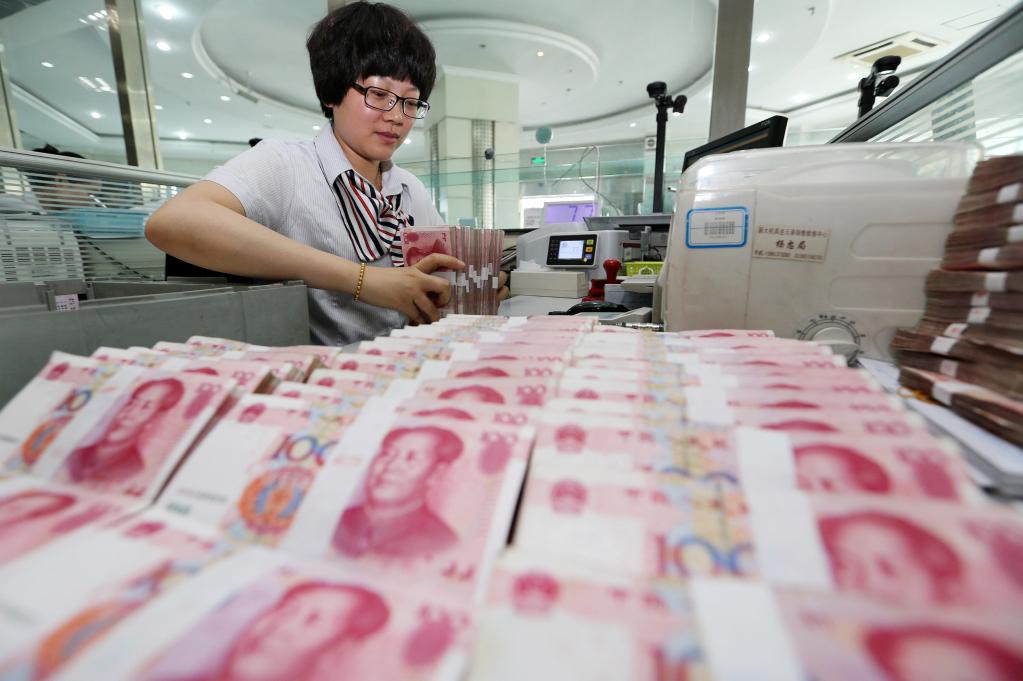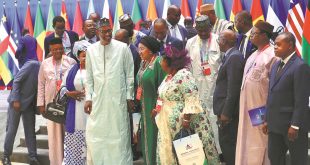Published: January 03,2023

This file photo shows a bank staff working in Lianyungang, east China’s Jiangsu Province, Aug. 11, 2015. (Xinhua/Si Wei)
Mauritius now has the third clearing center for the Chinese currency renminbi (RMB), or the yuan, in Africa, after South Africa and Zambia. The newly launched center is expected to facilitate trade with China, not only for Mauritius but also for the African region.
Mauritius now has the third clearing center for the Chinese currency renminbi (RMB), or the yuan, in Africa, after South Africa and Zambia. Officially launched on Dec. 16, the center tends to facilitate trade with China, not only for Mauritius but also for the African region, say several financial experts.
The presence of an RMB hub in Mauritius is of “considerable interest,” not only for the Mauritian domestic market but also for the global business, notably “cross-border flows going through Mauritius,” said Daniel Essoo, the chief executive officer of the Mauritius Banks Association, during a recent Mauritius-China economic cooperation forum.
Official statistics show that China is Mauritius’ largest source of imports. Nearly 18 percent of the imports of Mauritius originated from China in 2021.
“The launch of the RMB clearing center is timely so that local Mauritian importers can request Chinese suppliers to invoice them in RMB, and the Mauritian banks can make use of the local RMB center for their international settlements,” explained Li Lianhong, the chief executive officer of Bank of China in Mauritius.
As a large proportion of imports in Mauritius come from China, “having this facility (RMB clearing center) here means that actually it will be much easier and hopefully much cheaper, for importers, to start using the center and reduce the FX (foreign exchange) cost,” echoed Essoo. “They may be able to keep balances in RMB, and they may start trading directly in RMB.”
Essoo, however, considered the RMB clearing center in Mauritius to be “even more interesting” from a regional and global connectivity perspective.
“Mauritius is already and has always been part of (African) regional initiatives, and this idea is to link up different payment systems with different financial systems so that Mauritius is really at the heart of this web of payment systems,” Essoo noted.
“With the introduction of the RMB clearing center, Mauritius can become a bridge and hub that can link China with Africa,” Li suggested.
Li said China has been Africa’s largest trading partner for more than 10 years, with bilateral trade rising to a record high of 254 billion U.S. dollars last year. “Mauritius has the potential and the ability to become a bridge for economic and trade cooperation between Africa and China, and even between Africa and Asia,” he reiterated.
According to the Bank of International Settlement, international payments in RMB accounted for 2.7 percent of all currency in 2021, and the share of RMB payments has continuously increased since then. Meanwhile, the RMB quota in the Special Drawing Rights basket of the International Monetary Fund rose to about 14 percent in 2022.
“RMB is the most important currency for emerging markets,” said Mardayah Kona Yerukunondu, first deputy governor of the Bank of Mauritius, adding that “RMB is poised to become a very important currency in the world in the days to come.”
“When the RMB clearing hub in Mauritius starts to take momentum, it will certainly have a spillover effect on the financial sector, on prosperity, and on the growth of the economy in general,” the first deputy governor added.
Congratulating the presence of Mauritius as a regional financial hub, Essoo said “we are very fortunate to be considered one of the pearls in the Chinese strategy for a string of pearls.”
“Having this jewel in the crown, having this facility (RMB clearing center) means that RMB payments can go around and increase the volume of payments,” he applauded.
“The RMB clearing center is not only a business, but also a contribution that we should make to facilitate RMB usage in the cross border transaction and bring trade, investment and economic cooperation between China, Mauritius and also Africa to a new level,” Li concluded.
Xinhua
 Africa -China Review Africa -China Cooperation and Transformation
Africa -China Review Africa -China Cooperation and Transformation
